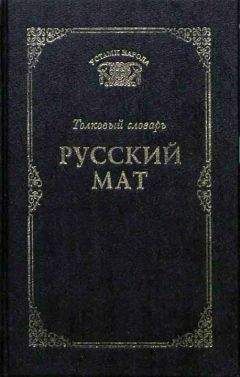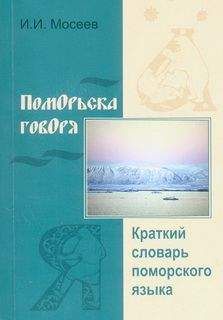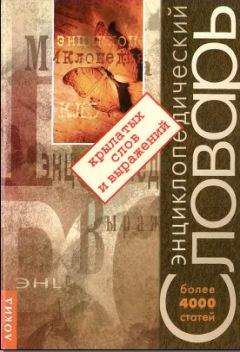Adam Makkai - Словарь американских идиом: 8000 единиц
Скачивание начинается... Если скачивание не началось автоматически, пожалуйста нажмите на эту ссылку.
Жалоба
Напишите нам, и мы в срочном порядке примем меры.
Описание книги "Словарь американских идиом: 8000 единиц"
Описание и краткое содержание "Словарь американских идиом: 8000 единиц" читать бесплатно онлайн.
Это обновленное и дополненное издание, содержащее более 8000 идиоматических слов и выражений, причем каждое из которых снабжено грамматическим объяснением и практическим примером. Словарь содержит лексемные идиомы, фразеологические единицы и поговорки, имеющие особенное значение. В нем приведены наиболее употребительные выражения только американского английского языка. Этот словарь — идеальное пособие для студентов, часто разъезжающих бизнесменов и просто путешественников.
[color scheme]{n.} A plan for colors used together as decoration. •/The color scheme for the dance was blue and silver./ •/Mary decided on a pink and white color scheme for her room./
[comb] See: FINE-TOOTH COMB.
[come] See: CHICKENS COME HOME TO ROOST, CROSS A BRIDGE BEFORE ONE COMES TO IT, EASY COME — EASY GO, FIRST COME — FIRST SERVED, GET WHAT’S COMING TO ONE, HAVE IT COMING, HOW COME also HOW’S COME, IF WORST COMES TO WORST, JOHNNY-COME-LATELY, KNOW ENOUGH TO COME IN OUT OF THE RAIN, KNOW IF ONE IS COMING OR GOING, LOOK AS IF ONE HAS COME OUT OF A BANDBOX, SHIP COME IN.
[come about]{v.} To take place; happen, occur. •/Sometimes it is hard to tell how a quarrel comes about./ •/When John woke up he was in the hospital, but he didn’t know how that had come about./
[come a cropper] 1. To fall off your horse. •/John’s horse stumbled, and John came a cropper./ 2. To fail. •/Mr. Brown did not have enough money to put into his business and it soon came a cropper./ Compare: RIDING FOR A FALL.
[come across]{v.} 1. or [run across] To find or meet by chance. •/He came across a dollar bill in the suit he was sending to the cleaner./ •/The other day I ran across a book that you might like./ •/I came across George at a party last week; it was the first time I had seen him in months./ Compare: COME ON(3), RUN INTO(3b). 2. To give or do what is asked. •/The robber told the woman to come across with her purse./ •/For hours the police questioned the man suspected of kidnapping the child, and finally he came across with the story./
[come again]{v.}, {informal} Please repeat; please say that again. — Usually used as a command. •/"Harry has just come into a fortune," my wife said. "Come again? " I asked her, not believing it./ •/"Come again," said the hard-of-hearing man./
[come alive] or [come to life] {v.} 1. {informal} To become alert or attentive; wake up and look alive; become active. •/When Mr. Simmons mentioned money, the boys came alive./ •/Bob pushed the starter button, and the engine came alive with a roar./ 2. To look real; take on a bright, natural look. •/Under skillful lighting, the scene came alive./ •/The President came alive in the picture as the artist worked./
[come along]{v.} To make progress; improve; succeed. •/He was coming along well after the operation./ •/Rose is coming right along on the piano./
[come a long way]{v. phr.} To show much improvement; make great progress. •/The school has come a long way since its beginnings./ •/Little Jane has come a long way since she broke her leg./
[come apart at the seams]{v. phr.}, {slang}, {informal} To become upset to the point where one loses self-control and composure as if having suffered a sudden nervous breakdown. •/After his divorce Joe seemed to be coming apart at the seams./
[come around] See: COME ROUND.
[come at]{v.} 1. To approach; come to or against; advance toward. •/The young boxer came at the champion cautiously./ 2. To understand (a word or idea) or master (a skill); succeed with. •/The sense of an unfamiliar word is hard to come at./
[come back]{v.}, {informal} 1. To reply; answer. •/The lawyer came back sharply in defense of his client./ •/No matter how the audience heckled him, the comedian always had an answer to come back with./ 2. To get a former place or position back, reach again a place which you have lost. •/After a year off to have her baby, the singer came back to even greater fame./ •/It is hard for a retired prize fighter to come hack and beat a younger man./
[comeback]{n.}, {v. phr.}, {slang}, {citizen’s band radio jargon} A return call. •/Thanks for your comeback./
[come back to earth] or [come down to earth] {v. phr.} To return to the real world; stop imagining or dreaming; think and behave as usual. •/After Jane met the movie star it was hard for her to come back to earth./ •/Bill was sitting and daydreaming so his mother told him to come down to earth and to do his homework./ Compare: COME TO ONE’S SENSES, DOWN-TO-EARTH. Contrast: IN THE CLOUDS.
[come between]{v.} To part; divide; separate. •/John’s mother-in-law came to live in his home, and as time passed she came between him and his wife./ •/Bill’s hot rod came between him and his studies, and his grades went down./
[come by]{v.} To get; obtain; acquire. •/A good job like that is hard to come by./ •/Money easily come by is often easily spent./ •/How did she come by that money?/
[come by honestly]{v. phr.}, {informal} To inherit (a characteristic) from your parents. •/Joe comes by his hot temper honestly; his father is the same way./
[come clean]{v. phr.}, {slang} To tell all; tell the whole story; confess. •/The boy suspected of stealing the watch came clean after long questioning./
[comedown]{n.} Disappointment; embarrassment; failure. •/It was quite a comedown for Al when the girl he took for granted refused his marriage proposal./
[come down]{v.} 1. To reduce itself; amount to no more than. — Followed by "to". •/The quarrel finally came down to a question of which boy would do the dishes./ Syn.: BOIL DOWN(3). 2. To be handed down or passed along, descend from parent to child; pass from older generation to younger ones. •/Mary’s necklace had come down to her from her grandmother./
[come down hard on]{v.}, {informal} 1. To scold or punish strongly. •/The principal came down hard on the boys for breaking the window./ 2. To oppose strongly. •/The minister in his sermon came down hard on drinking./
[come down in the world]{v. phr.} To lose a place of respect or honor, become lower (as in rank or fortune). •/The stranger plainly had come down a long way in the world./ Compare: DOWN ON ONE’S LUCK.
[come down off one’s high horse]{v. phr.} To become less arrogant; to assume a more modest disposition. •/The boastful candidate for Congress quickly came down off his high horse when he was soundly beaten by his opponent./
[come down on like a ton of bricks]{v. phr.}, {slang} To direct one’s full anger at somebody. •/When the janitor was late for work, the manager came down on him like a ton of bricks./
[come down to earth] See: COME BACK TO EARTH.
[come down with]{v.}, {informal} To become sick with; catch. •/We all came down with the mumps./ •/After being out in the rain, George came down with a cold./
[come from far and wide]{v. phr.} To originate or hail from many different places. •/The students at this university come from far and wide and speak many languages./
[come full circle]{v. phr.}, {informal} 1. To become totally opposed to one’s own earlier conviction on a given subject. •/Today’s conservative businessperson has come full circle from former radical student days./ 2. To change and develop, only to end up where one started. •/From modern permissiveness, ideas about child raising have come full circle to the views of our grandparents./
[come hell or high water]{adv. phr.}, {informal} No matter what happens; whatever may come. •/Grandfather said he would go to the fair, come hell or high water./ Compare: COME WHAT MAY, THROUGH THE MILL.
[come home to roost] See: CHICKENS COME HOME TO ROOST.
[come in]{v.} 1. To finish in a sports contest or other competition. •/He came in second in the hundred-yard dash./ 2. To become the fashion; begin to be used. •/Swimming trunks for men came in after World War I; before that men used full swim suits./
[come in for]{v.} To receive. •/He came in for a small fortune when his uncle died./ •/His conduct came in for much criticism./
[come in handy]{v. phr.}, {informal} To prove useful. •/Robinson Crusoe found tools in the ship which came in handy when he built a house./ •/The French he learned in high school came in handy when he was in the army in France./
[come into]{v.} To receive, especially after another’s death; get possession of. •/He came into a lot of money when his father died./ •/He came into possession of the farm after his uncle died./
[come into one’s own]{v. phr.} To receive the wealth or respect that you should have. •/John’s grandfather died and left him a million dollars; when John is 21, he will come into his own./ •/With the success of the Model T Ford, the automobile industry came into its own./
[came natural] See: COME EASY.
[come of]{v.} 1. To result from. •/After all the energy we spent on that advertising campaign, absolutely nothing came of it./ 2. To become of; happen to. •/"Whatever became of your son, Peter?"/
[come of age] See: OF AGE.
[come off]{v.} 1. To take place; happen. •/The picnic came off at last, after being twice postponed./ 2. {informal} To do well; succeed. •/The attempt to bring the quarreling couple together again came off, to people’s astonishment./
[come off it] also [get off it] {v. phr.}, {slang} Stop pretending; bragging, or kidding; stop being silly. — Used as a command. •/"So I said to the duchess…" Jimmy began. "Oh, come off it," the other boys sneered./ •/Fritz said he had a car of his own. "Oh, come off it," said John. "You can’t even drive."/
[come off] or [through with flying colors] {v. phr.} To succeed; triumph. •/John came off with flying colors in his final exams at college./
[come off second best]{v. phr.} To not win first but only second, third, etc. place. •/Our home team came off second best against the visitors./ •/Sue complains that she always comes off second best when she has a disagreement with her husband./
[come on]{v.} 1. To begin; appear. •/Rain came on toward morning./ •/He felt a cold coming on./ 2. To grow or do well; thrive. •/The wheat was coming on./ •/His business came on splendidly./ 3. or [come upon]. To meet accidentally; encounter; find. •/He came on an old friend that day when he visited his club./ •/He came upon an interesting idea in reading about the French Revolution./ Syn.: COME ACROSS, HAPPEN ON. 4. {informal} Let’s get started; let’s get going; don’t delay; don’t wait. — Used as a command. •/"Come on, or we’ll he late," said Joe, but Lou still waited./ 5. {informal} Please do it! — Used in begging someone to do something. •/Sing us just one song, Jane, come on!/ •/Come on, Laura, you can tell me. I won’t tell anybody./
[come-on]{n.}, {slang} An attractive offer made to a naive person under false pretenses in order to gain monetary or other advantage. •/Joe uses a highly successful come-on when he sells vacant lots on Grand Bahama Island./
[come one’s way]{v. phr.} To be experienced by someone; happen to you. •/Tom said that if the chance to become a sailor ever came his way, he would take it./ •/I hope bad luck isn’t coming our way./ •/Luck came Bill’s way today and he hit a home run./ Compare: GO ONE’S WAY, IN ONE’S FAVOR.
[come on strong]{v. phr.}, {slang} To overwhelm a weaker person with excessively strong language, personality, or mannerisms; to insist extremely strongly and claim something with unusual vigor. •/Joe came on very strong last night about the War in Indochina; most of us felt embarrassed./
[come out]{v.} 1. {Of a girl:} To be formally introduced to polite society at about age eighteen, usually at a party; begin to go to big parties, •/In society, girls come out when they reach the age of about eighteen, and usually it is at a big party in their honor; after that they are looked on as adults./ 2. To be published. •/The book came out two weeks ago./ 3. To become publicly known. •/The truth finally came out at his trial./ 4, To end; result; finish. •/How did the story come out?/ •/The game came out as we had hoped./ •/The snapshots came out well./ 5. To announce support or opposition; declare yourself (for or against a person or thing). •/The party leaders came out for an acceptable candidate./ •/Many Congressmen came out against the bill./ 6. See: GO OUT FOR.
Подписывайтесь на наши страницы в социальных сетях.
Будьте в курсе последних книжных новинок, комментируйте, обсуждайте. Мы ждём Вас!
Похожие книги на "Словарь американских идиом: 8000 единиц"
Книги похожие на "Словарь американских идиом: 8000 единиц" читать онлайн или скачать бесплатно полные версии.
Мы рекомендуем Вам зарегистрироваться либо войти на сайт под своим именем.
Отзывы о "Adam Makkai - Словарь американских идиом: 8000 единиц"
Отзывы читателей о книге "Словарь американских идиом: 8000 единиц", комментарии и мнения людей о произведении.


























